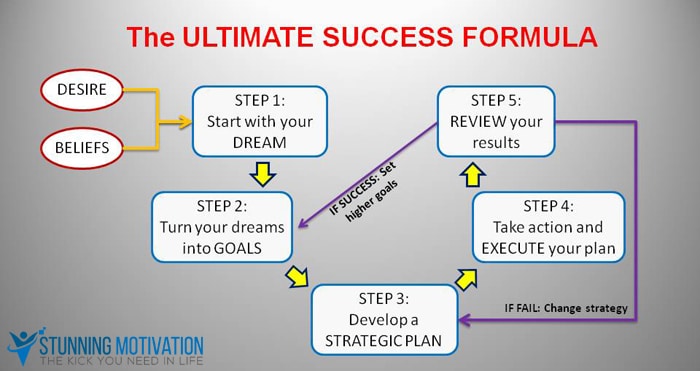Employers often value impressive presentation skills in the workplace, especially if your job requires you to speak confidently and clearly to strangers. However, perfecting this skill takes a lot of time, so is learning to be a decent public speaker actually worth the effort? Yes, it is.
Why Are Presentation Skills Important?
Presentation skills, which include various public speaking skills, allow you to communicate your ideas and information to the audience effectively. Presenting in a confident and articulate manner encourages audience engagement and validates the quality of your content.
Presentations also allow you to promote your products or services confidently, persuade investors to back your business, and get your point across to customers. When you are able to present in a compelling way, you can gain long-term support from your team and customers.
Here are some other reasons why presentation skills are important:
1. Presentation Skills Are Key for Added Visibility
When you can confidently present and make an impact at events, you increase your profile within the organization and visibility in the community. Great public speakers are generally more respected.
2. Building Credibility and Establishing Authority

When you speak in a knowledgeable and confident manner, your team and customer base will view you as a subject matter expert and believe in your ability to help them solve their problems.
3. Presentation Skills Help You Manage Difficult Situations
If you can speak confidently during meetings, it may also mean you can remain poised under pressure. Employers prefer to fire employees that are adaptable and completely focused.
4. Great Closing Statements Stay With Customers
You never know when opportunities for growth or promotion will arise, and learning how to present your ideas with confidence can give you the edge you need to take control of any situation.
In the next section, we’ll take a look at how the benefits of presentation skills show up in the workplace. We’ll look at specific scenarios, such as during a meeting or in an interview.
How Presentation Skills Give You an Upper Hand at Work

Nurturing this skill set will increase your chances of acquiring gainful employment and future promotions.
Here are 7 ways great presentation skills give you an upper hand at work.
1. Acing Interviews
Presentation skills benefit employees before they’re even hired. In the interview stage, recruiters are more likely to consider you a great candidate if you’re confident, likable, and aware of your body language. Recruiters remember people who are diligent, engaged, and overall ambitious.
Your presentation skills allow you to sell yourself in a way that appeals to the recruiter in the moment but also before the interview. Someone with great presentation skills knows to do their research before showing up, so they can answer questions and connect relevant details.
2. Attending Meetings
It’s easy to see why presentation skills would be beneficial in meetings. Whether you’re creating a sales pitch or attending a conference, this skill helps you express yourself and impress those around you. A well-planned, straightforward presentation will hold the audience’s attention.
Creativity also plays a role in effective presentations. For example, you can enhance your presentations with stunning backgrounds, images, or graphics that grab people’s attention. Creativity can also show up in how you convey information or how you organize topics.
3. Building a Network

There’s a direct relationship between the size of your network and the amount of information you have access to, as outlined by a 2019 study. That information could be valuable for your personal growth or career success. It could also help your employers expand their business.
Presentation skills aren’t just beneficial when you’re speaking to an audience; they also come in handy during one-on-one conversations. Others will see your natural charisma and instantly want to learn more about your projects or products, making you a top pick for conferences.
By the way, if you want to learn how to build better networks and grow your circle of influence, get this book and read it – Influence: The Psychology of Persuasion.
4. Employee Training
Anyone who’s ever had to train a group of fresh employees can tell you how difficult that can be. At best, your employees fall asleep, but if they aren’t engaged, they probably aren’t retaining any info. Presentation skills can wake your team up and make them hang on to every word.
A great public speaker can create short and informative presentations that don’t overwhelm the audience. They’re able to say what needs to be said quickly, which makes teams productive and knowledgeable from the word go. An incredible trainer is going to be considered for promotions.
5. Customer Service
Customer service jobs are plenty, but even if you aren’t working in retail or a restaurant, there’s still a high chance you’ll need to communicate with customers. If your goal is to become more personable this year, then work on your presentation skills, empathy, and active listening.
When you have positive relationships with customers, your selling tactics will improve. Not just because you better understand the customer’s psychology but also because they like you. If your customers trust you, they stay loyal to you and purchase more of your products/services.
6. Work Reputation

It’s hard to build a reputation when you don’t get out and network, speak to your colleagues, or stay active in your community. Social butterflies start to be seen as more favorable by others, and that’s exactly what you want. A positive reputation makes you a valuable company asset.
After all, your company will want you to represent them, especially if you have no problem making friends and building genuine connections. The more you get your name out there, the more you’ll be seen as an industry expert, which will improve your future job prospects.
7. Phone or Text
While some business transactions take place in person, many more occur through phone or text. Text is especially becoming more popular because of its convenience, but you have to be careful. If you write a text that’s tonally ambiguous, you could upset your potential customers.
The same goes for phone calls. Your customers can’t read your body language or check for eye contact, so your voice could clock you as being upset or bored. You need to improve your presentation skills in an online and offline world if you want to truly stand out in the workplace.
Conclusion
While many professionals focus on people skills and communication, you need to take a holistic approach to be a great public speaker. That’s why you need to perfect all of the soft skills that help you keep your audience’s attention. Presentation skills can make or break your career.












